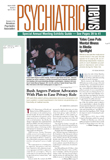Talk has turned to action when it comes to moving from managed care to a consumer-driven health benefits system.
In March panelists at Business Health Agenda 2002, an annual meeting sponsored by the Washington Business Group on Health (WBGH), outlined steps their companies had taken to transform employees into consumers who are responsible for choosing and paying for benefits and for making educated decisions about how to enhance their own health.
The impetus for the change? At the current rate of increase in health care costs, employers face the prospect of doubled health benefit costs by 2007.
Brian Marcotte, vice president of Benefits and Compensation Programs at Honeywell, said his company’s goals are to transfer risk management to employees and to decouple the relationship between compensation, contribution, and health care costs.
He added that with managed care, “we created passive consumers with no skin in the game.”
Peter V. Lee, president and CEO of the Pacific Business Group on Health, pointed out that from 1993 to 2001 the employee share of premiums declined by 25 percent.
Robert O’Brien Jr., U.S. practice leader at William M. Mercer Inc., characterized managed care as a “top-down” system that contrasts with a consumer-directed system that operates from the bottom up.
Employers Promote Consumerism
WBGH and Watson Wyatt Worldwide (WWW), a consulting and financial management firm, released findings from a survey conducted in November and December 2001 of 292 employers that collectively provide benefits to more than 10 million employees and dependents.
They found that consumerism is the strategy that respondents are adopting at the fastest rate to combat rising health care costs. Nineteen percent of the respondents had strategies promoting consumerism in place, and 43 percent had such strategies planned for the next year.
Although noting the lack of a common definition, the WBGH-WWW survey says that consumerism generally refers to systems that inform and empower employees to participate more actively in health care buying decisions by putting them in charge of spending their own health care dollars.
Defined contribution plans, for example, are a benefits offering in which the employer contributes a specified amount toward benefits and shifts the risk and responsibility for the use of that money to the employee. The basic approach comes from the defined-contributions model for pensions in which the employer no longer guarantees a specific annual payout upon retirement (Psychiatric News, December 21, 2001).
A WWW survey of 200 companies, 68 percent of which have at least 1,000 employees, found that 20 percent of their respondents thought it likely that they would offer a defined contribution option during the next 12 months. The survey was titled “Health Care Costs 2002.”
Consumer Empowerment
What will it take to realize a vision of empowered consumers making wise decisions about benefits and their own health? Access to information and education, according to employers.
Of the employers responding to the WWW-2002 survey, 75 percent reported that they were likely or somewhat likely to support employee health education with Web-based materials in the coming year.
Honeywell and several other large employers have undertaken an even more ambitious educational effort.
In 1999 Honeywell contracted with Consumer’s Medical Resource (CMR) to provide expert information to members of its health plans who suffer from serious (and therefore, costly) medical conditions.
Marcotte noted that approximately 10 percent of the population is responsible for 70 percent of health care costs.
CMR contracts with physicians from prestigious medical schools and puts staff to work analyzing medical publications to come up with the most current information about treatment options for conditions like cancer, Parkinson’s disease, and organ failure.
CMR founder David Hines told Psychiatric News that the company offers “an informed-decision-making service,” not merely a second opinion. The aim is to give a patient all the information necessary to make a good decision about treatment.
Marcotte told the audience about one plan member who had been treated for Parkinson’s disease for over a year and had moved to a new home with a wheelchair ramp. After he asked his doctor questions suggested by CMR, the patient discovered that he had never had an adequate diagnostic work-up for the disease. It turned out that he was suffering only from a benign hand tremor.
The program seems to be reaching its goals of promoting cost-effective, quality health care. One in 30 of Honeywell’s employees who used the CMR service reported being misdiagnosed, and one in five eventually changed doctors.
The company reported that it earned a $2.80 return for each dollar spent on the service during the first year of operation.
Hines said that the company recently had added attention-deficit/hyperactivity disorder to the list of diseases for which it provides information. CMR typically develops a disease module and tests it with one company before offering it to all its clients.
“One mother who used our service had been so frustrated with the side effects of the medication her son had been receiving that she was about to give up on treatment altogether,” he said. But a review of the case revealed that the child had been given an inappropriate dosage for his weight.
The company is considering how best to develop a module for depression. The ability to evaluate treatments is particularly important because of high expenditures on drugs used to treat depression and the impact the illness has on the individual and his or her ability to function at work.
Hines also thinks that involvement of family members will be particularly crucial in considering treatment options and trying to understand the disease. “It will be important for people closest to the individual to become educated about depression,” he said.
The Web site for Consumer’s Medical Resource is www.consumersmedical.com. The Web site for the Washington Business Group on Health is www.wbgh.com. ▪
